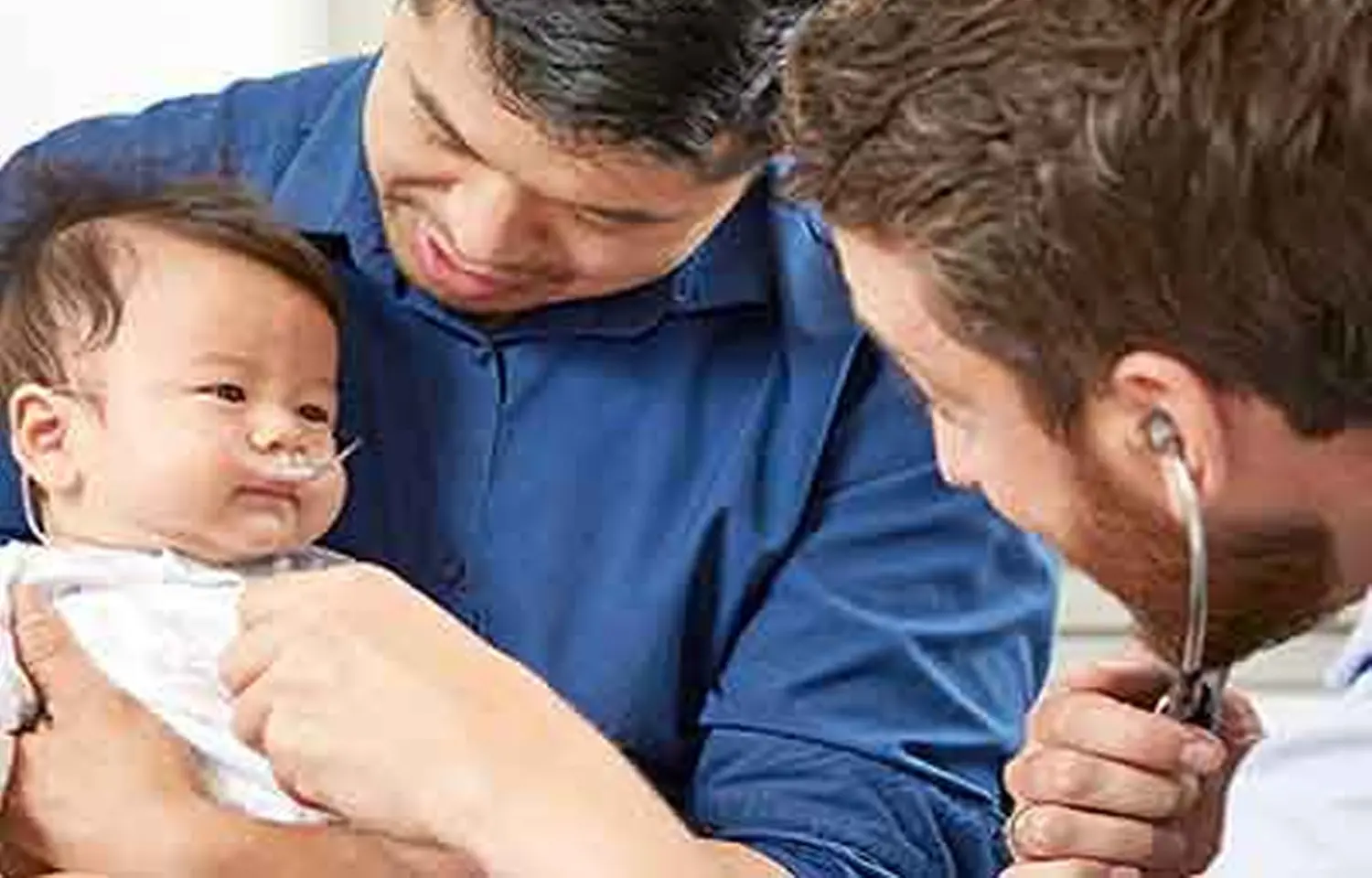- Home
- Medical news & Guidelines
- Anesthesiology
- Cardiology and CTVS
- Critical Care
- Dentistry
- Dermatology
- Diabetes and Endocrinology
- ENT
- Gastroenterology
- Medicine
- Nephrology
- Neurology
- Obstretics-Gynaecology
- Oncology
- Ophthalmology
- Orthopaedics
- Pediatrics-Neonatology
- Psychiatry
- Pulmonology
- Radiology
- Surgery
- Urology
- Laboratory Medicine
- Diet
- Nursing
- Paramedical
- Physiotherapy
- Health news
- Fact Check
- Bone Health Fact Check
- Brain Health Fact Check
- Cancer Related Fact Check
- Child Care Fact Check
- Dental and oral health fact check
- Diabetes and metabolic health fact check
- Diet and Nutrition Fact Check
- Eye and ENT Care Fact Check
- Fitness fact check
- Gut health fact check
- Heart health fact check
- Kidney health fact check
- Medical education fact check
- Men's health fact check
- Respiratory fact check
- Skin and hair care fact check
- Vaccine and Immunization fact check
- Women's health fact check
- AYUSH
- State News
- Andaman and Nicobar Islands
- Andhra Pradesh
- Arunachal Pradesh
- Assam
- Bihar
- Chandigarh
- Chattisgarh
- Dadra and Nagar Haveli
- Daman and Diu
- Delhi
- Goa
- Gujarat
- Haryana
- Himachal Pradesh
- Jammu & Kashmir
- Jharkhand
- Karnataka
- Kerala
- Ladakh
- Lakshadweep
- Madhya Pradesh
- Maharashtra
- Manipur
- Meghalaya
- Mizoram
- Nagaland
- Odisha
- Puducherry
- Punjab
- Rajasthan
- Sikkim
- Tamil Nadu
- Telangana
- Tripura
- Uttar Pradesh
- Uttrakhand
- West Bengal
- Medical Education
- Industry
Diuretics reduce pulmonary edema in babies with bronchopulmonary dysplasia: Study

During the first week of therapy, diuretic administration is linked to a reduction in pulmonary edema and an improvement in oxygenation in babies with bronchopulmonary dysplasia (BPD), says an article published in Pediatric Pulmonology.
Lung damage with variable degrees of defective alveolarization, vascular remodeling, inflammatory cell proliferation, and pulmonary edema are characteristics of bronchopulmonary dysplasia. Diuretics are frequently used to treat BPD symptoms or stop its development. Therefore, the main goal of this study by Gangajal Kasniya and company was to employ lung ultrasonography (LUS) to ascertain if diuretics reduce pulmonary edema in babies with BPD. Assessing changes in respiratory support over the first week following the start of diuretics was the secondary goal.
In this study, a comparable group of newborns not receiving diuretics was compared to preterm infants needing non-invasive respiratory assistance and beginning diuretic medication for developing BPD (control). LUS tests were carried out before, on days 1, 3, and 6 following the start of medication for the diuretic group. LUS was done at comparable times for the control group. Based on the total number of B-lines in 6 scanned locations, a composite pulmonary edema severity (PES) score ranging from 0 to 5 was generated. Also monitored were the respiratory support parameters (FiO2, nasal cannula flow, or CPAP).
The key findings of this study were:
1. The median adjusted gestational ages of the infants in the diuretic (n=28) and control (n=23) groups were 34.2 (33.3-35.9) and 34.0 (33.4-36.3) weeks, respectively (p=0.82).
2. PES scores, FiO2, and respiratory flow support all declined significantly from day 0 to day 6 in the diuretic group but not in the control group (p.0001, p=0.001, and p=0.01, respectively).
Reference:
Kasniya, G., Weinberger, B., Cerise, J., Pulju, M., Boyar, V., Frunza, F., & Kurepa, D. (2022). Lung Ultrasound Assessment of Pulmonary Edema in Neonates with Chronic Lung Disease Before and After Diuretic Therapy. In Pediatric Pulmonology. Wiley. https://doi.org/10.1002/ppul.26150
Neuroscience Masters graduate
Jacinthlyn Sylvia, a Neuroscience Master's graduate from Chennai has worked extensively in deciphering the neurobiology of cognition and motor control in aging. She also has spread-out exposure to Neurosurgery from her Bachelor’s. She is currently involved in active Neuro-Oncology research. She is an upcoming neuroscientist with a fiery passion for writing. Her news cover at Medical Dialogues feature recent discoveries and updates from the healthcare and biomedical research fields. She can be reached at editorial@medicaldialogues.in
Dr Kamal Kant Kohli-MBBS, DTCD- a chest specialist with more than 30 years of practice and a flair for writing clinical articles, Dr Kamal Kant Kohli joined Medical Dialogues as a Chief Editor of Medical News. Besides writing articles, as an editor, he proofreads and verifies all the medical content published on Medical Dialogues including those coming from journals, studies,medical conferences,guidelines etc. Email: drkohli@medicaldialogues.in. Contact no. 011-43720751


